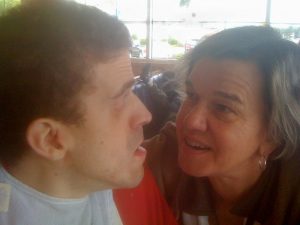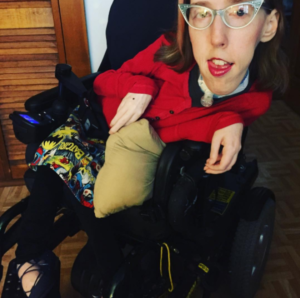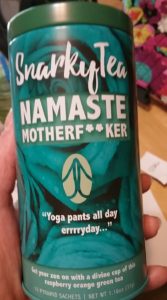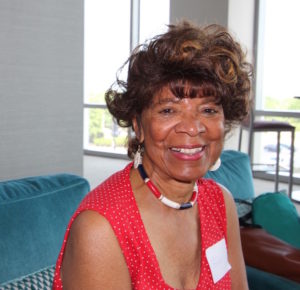Mondays with Mike: It’s up to us
June 26, 2017 • 12 Comments • Posted in Beth Finke, Mike Knezovich, Mondays with Mike, parenting a child with special needs, politicsMeet Gus, our son.

Our little man and his mom.
He’s 30. He laughs heartily when I sing to him in a Louis Armstrong voice. He loves music, especially stuff that has unusual rhythms—Prince is a favorite. He doesn’t seem to be able to see very well straight ahead, but he manages with his peripheral vision. And he knows Beth’s voice and my bearded face.
He can’t talk. He can kinda’ walk with assistance. And he wears diapers. He lives in a group home in Watertown, Wisconsin. It’s operated by Bethesda Lutheran Communities.
Gus was born with a genetic anomaly called trisomy 12-p. Pretty rare. The only literature we found at the time said he was unlikely to reach age 30. But he did. I’m proud of him. And of us. And of my fellow Americans who made it possible.
By the time Gus reached age 16 he was mobile and strong enough for it to be a safety issue for him and for us. We were lucky to find Bethesda. It’s a religiously affiliated non-profit. It gets donations. But it can’t do what it does without help from the broader community—like Medicaid and other programs.
Gus needs help with everything. And he gets it. From salt-of-the-earth-people who make, essentially, the minimum wage. Medicaid helps pay for that. But barely enough. Bethesda is in the midst of financial struggles, as are lots of such agencies across the country.
Gus gets medical care from providers who accept Medicaid. It’s hard finding providers in some fields—like dentistry—but overall, compared to a couple of his housemates, he’s fortunate to not need a lot of specialists’ care.
I want you to trust me on this. I’m a pretty smart person. I love my son. I’ve watched closely. No one’s getting rich off of others’ labors in this equation.
Gus is served by a Wisconsin program called Family Care, which is essentially a kind of HMO for people like him. Family Care administers Medicaid funds and pays the group home operators, and oversees the operators, and looks after Gus’ care, and communicates with us about his health and any behavioral issues. Family Care does a very good job.
Which is great—but we’re lucky to have Bethesda looking out after him because they’re on it. We always hear pronto from Sarah, who’s a lead at the home where he lives, if anything is amiss with Gus.
Beth and I have always worked. We’ve paid a lot of taxes. But even if we were totally frugal, we couldn’t cover the cost of Gus’ care. And though we’re both sort of healthy, we haven’t been able to provide that care directly for a long while now.
I’ve worked at non-profits, at government-supported institutions of higher education, at startups, and at Fortune 500 companies. I’m here to tell you, they’re all a mess. They’re a collection of humans being humanly clumsy. They all rely on enough people trying to do the right thing. If not enough of those people are in the right places at the right time trying to do the right thing, failures ensue. Government. Private sector. Doesn’t matter.
There are worthwhile discussions to be had about the devils in the details of programs like Medicaid, Medicare, etc. I’m not a rigid ideologue. Everything can work better than it does.
But we’re not having that discussion anymore.
Awhile back I wrote a post about how when bad things happen you can feel pretty alone. And about the value of understanding that you’re not.
Right now I’m feeling pretty alone. So are a boatload of other people.
I hope you’ll speak up and prove us wrong.



